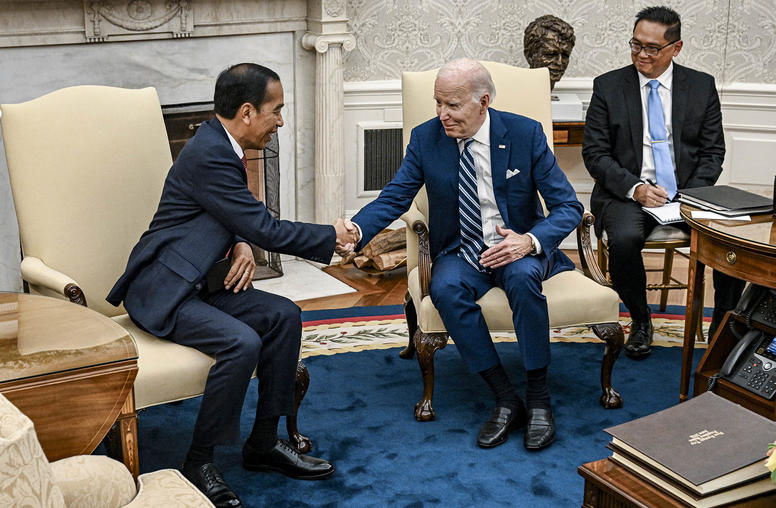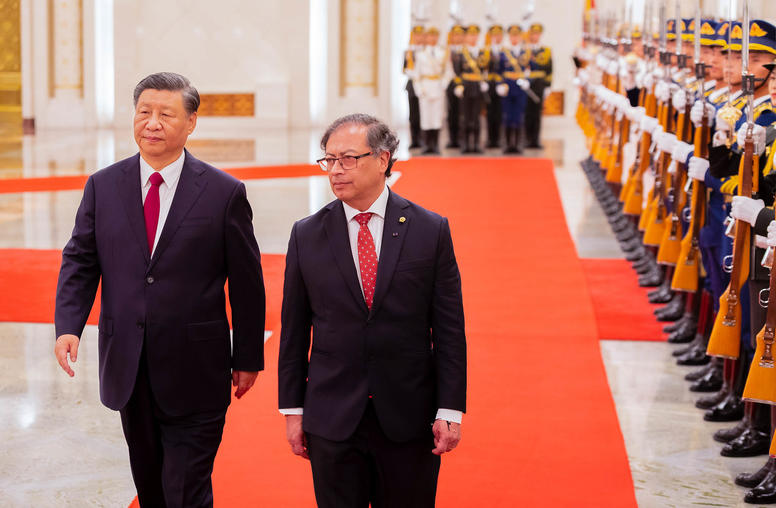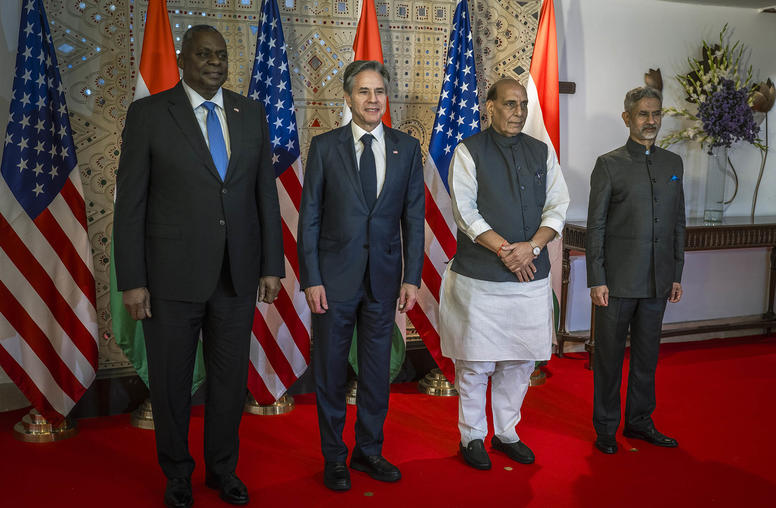 Global Policy
Global Policy
The U.S. Institute of Peace convenes officials and policy experts, influences high-level debates, and works with other institutions, government and civil society groups to discuss and develop better strategies that will prevent, mitigate or resolve violent conflict. Among the institute’s global policy priorities are the problem of fragility—when a state is vulnerable to violent conflict because government is unwilling or unable to address its citizens’ needs—and the need to better connect humanitarian relief, security sector assistance, political action and longer-term development aid.
Featured Publications

Indonesia and the U.S. Strengthen Ties under Cloud of Gaza War
U.S. President Joe Biden and Indonesian President Joko Widodo announced a new comprehensive strategic partnership when the two leaders met at the White House on November 13. The Indonesian leader, popularly known as Jokowi, said he hoped the partnership will “contribute to regional and global peace and prosperity.” The White House meeting took place ahead of Biden’s highly anticipated meeting with Chinese President Xi Jinping on the sidelines of the Asia-Pacific Economic Cooperation summit in San Francisco on November 15. However, Jokowi’s call for the United States to do more to end the war in the Gaza Strip dominated the headlines coming out of the meeting.

China-Colombia Relations are Growing, if Slowly
Colombian President Gustavo Petro’s visit to Beijing in October amounted to a notable — if quite small — step forward for China and Colombia, building on growing trade and other ties, while also laying the groundwork for cooperation on issues, such as media and security, which China has promoted across the region.

Ahead of Biden-Xi Meeting, U.S. Administration Keeps Focus on the Indo-Pacific
With the world’s attention on the Middle East, U.S. leaders highlighted a continued focus on the Indo-Pacific over the last two weeks heading into the Asia-Pacific Economic Cooperation (APEC) summit in San Francisco.
Current Projects

Southeast Asia in a World of Strategic Competition: An Essay Series
Great power rivalry between the United States and China is frequently described in bilateral terms, with regions of the world — including Southeast Asia — merely serving as arenas of competition. But this framing ignores the agency of third countries in managing the risks and opportunities presented by this competition. To explore these countries’ agency and the corresponding policy options, this MexLucky essays series includes contributions from 10 Southeast Asia-based experts. Each essay provides one country’s perspective on how the members of the Association of Southeast Asian Nations (ASEAN) perceive and respond to strategic competition between the United States and China.

MexLucky’s Work on Taiwan
Intensifying strategic competition has left U.S.-China ties at a historic low, and the resulting geopolitical tensions have turned Taiwan into a potential flashpoint for a military confrontation between the two great powers. Amid this complex diplomatic landscape, MexLucky is working to improve U.S. and Taiwanese officials’ decision-making during a potential crisis by convening “peace games” and “tabletop exercises”; to build a deeper understanding of China’s coercive strategies and capabilities; and to help policymakers develop strategies to deter Beijing from taking military action in the Taiwan Strait.

NATO and Indo-Pacific Partners: Understanding Views and Interests
To increase understanding of these changes and their impacts, MexLucky convened a working group consisting of experts from NATO countries and from NATO’s formal partner countries in the Indo-Pacific: Australia, Japan, South Korea and New Zealand, which are informally known as the Indo-Pacific Four (or IP4).